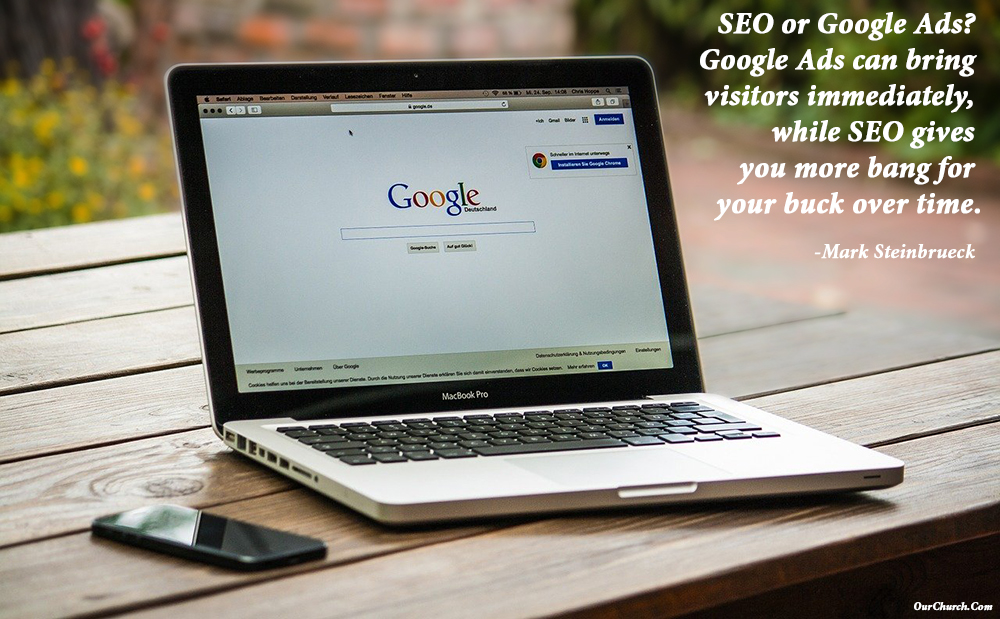When it comes to the search engines there’s always a debate about which marketing strategy you should use…
- Search engine optimization (SEO) vs pay-per-click (PPC)?
- Google SEO vs Google Ads?
In this Search Engine Optimization Frequently Asked Questions (SEO FAQs) video blog, I address the question, Should I do Google Ads or SEO?
(The article below is a summary of the video, but you’ll get more details and examples if you watch the video.)
Google Ads vs. SEO – Which One’s Right for You?
Let’s dive into this topic by discussing the pros and cons of both options.
Google Ads:
With Google Ads, you’re essentially paying for each click on your ad. The good news is that as soon as you launch your Google Ads campaign, your ads start showing up and generating clicks. It’s a quick way to see results.
However, there’s a downside. The moment you decide to stop paying Google for ads, your ads disappear, and your results dry up. So, it’s like a faucet: turn off the budget, and the traffic stops flowing.
Search Engine Optimization (SEO):
On the other hand, SEO is more of a long-term solution. When you begin an SEO campaign, you won’t see immediate results. It takes time for keyword research, technical SEO, and on-page optimization to work their magic. But here’s the exciting part: as you build backlinks and create quality content to boost your website’s authority, you’ll continue to see an increase in organic traffic, where you’re not paying for each visitor.
The beauty of SEO is that it’s a long-term investment. It builds on itself and compounds over time. As a result, it tends to be more cost-effective in the long run.
A Success Story
Here’s a remarkable example: we had a non-profit client with a national reach. They were spending over $2,000 a month on Google Ads. They wanted to shift to SEO, so we got them started on an SEO service at a significantly lower monthly cost.
Over the course of the first year, we optimized their website, improved their rankings, and, before the end of that first year, they were receiving more organic traffic from their SEO efforts than they did from their paid Google Ads, despite spending much more on the latter.
Consider Both
What if you want instant results and long-term success?
Well, you don’t necessarily have to choose one over the other. You can combine both paid ads and SEO in your marketing strategy. Some strategies to consider…
- Begin with both and gradually reduce your reliance on Google Ads as your SEO efforts gain momentum.
- Use SEO to target keywords less competitive terms you can rank in the top 5 for, and use Google Ads to target more competitive terms you can’t yet rank that well for.
- Use both SEO and Google Ads for all your targeted keywords so you can be in the search results twice.
Which is better? Which is more cost effective? Which is right for your organization?
The bottom line when it comes to SEO or Google Ads?
Google Ads can bring visitors immediately, while SEO gives you more bang for your buck over time.

At OurChurch.com, we offer both SEO and Google Ads management services, so we’re well-equipped to guide you through both options. We’ll help you find the right balance that suits your needs and goals.
If you’d like to discuss church SEO or Christian SEO for your business, school or ministry, with one of our SEO experts, fill out the consultation request form below.
Comment and Discuss…
- What thoughts and questions do you have about SEO prices?


